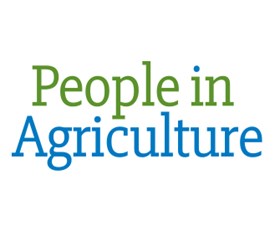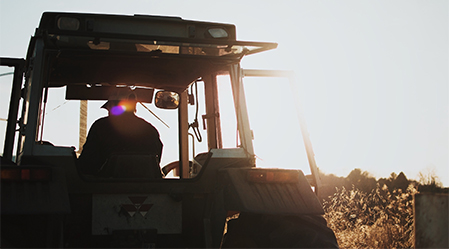Mixed Enterprise Farming Helping to Balance the Risk
30/5/2018
Mixed Enterprise farming includes a bit of cropping and a bit of animal rearing. While different forms of agriculture each bring their own ups and downsides, employing multiple streams can help to mitigate the risk of a poor season. Wagin farmer Clayton South has implemented mixed enterprise farming, rearing sheep and growing grain. He explains that this allows his family to have a stable income throughout the year even though it does come with its challenges.
Mixed Enterprise farming includes a bit of cropping and a bit of animal rearing. While different forms of agriculture each bring their own ups and downsides, employing multiple streams can help to mitigate the risk of a poor season.Wagin farmer Clayton South has implemented mixed enterprise farming, rearing sheep and growing grain. He explains that this allows his family to have a stable income throughout the year even though it does come with its challenges.
For Clayton sheep were very beneficial to his farm as meat and wool prices would outdo his average canola crop.
However, wool prices don’t stay high so there is also always room to adjust to based on the fluctuating rates. The sheep are raised to fit around the cropping ensuring that throughout the year there can be stable income.
Mr South employees Kelly Gorter full time. Her job includes driving an air seeder as well as a chaser bin, but she also gets handy with the sheep when necessary. Gorter has an honours degree in animal science and will be managing all the data as it relates to the sheep on the farm.
As a part of mitigating the risk even more, Mr South is collecting data so that he can make informed decisions that will help him to obtain better production. He collects data with Electronic Identification tags which record lambs weight at marking and also weaning etc. They can also track pregnancy status and scan ewes to see if there are singles or twins and if the ewes need to be fed more.
There are shortcomings to mixed enterprise farming. For example, Mr South notes that balancing sheep work over seeding involves locking the sheep away from pasture at intervals during rain. During this time they are confined fed, to manage this two full-time staff really help to ease the load.
With a crop of 2700ha this year and a seeding program that started recently they have their work cut out for them. They have already planted 400ha of barley mixing in some Serradella and clover. Planting the canola was held off as the soil was somewhat dry. So Clayton decided to go with some lupins followed by some barley and then oats. If there is a forecast of rain then the canola will be done right before the rains.
South attended boarding school in Perth and went to London afterwards to complete a Sports Science Degree.
He took over the farm from his dad and explains that he now enjoys it even though at first he just took it over because his dad had had enough.
Clayton enjoys the challenge and the feeling that working the land brings some amount of control over his destiny. Plans are always being reviewed and adjusted.
“We don’t know what is going to happen, if we have more twinning ewes after scanning we will need to change some of the croppings, maybe take out 50-60 ha for them,” he said.
“We are constantly looking at our stock, looking at prices and making those decisions, but also we just try and keep things simple.”





